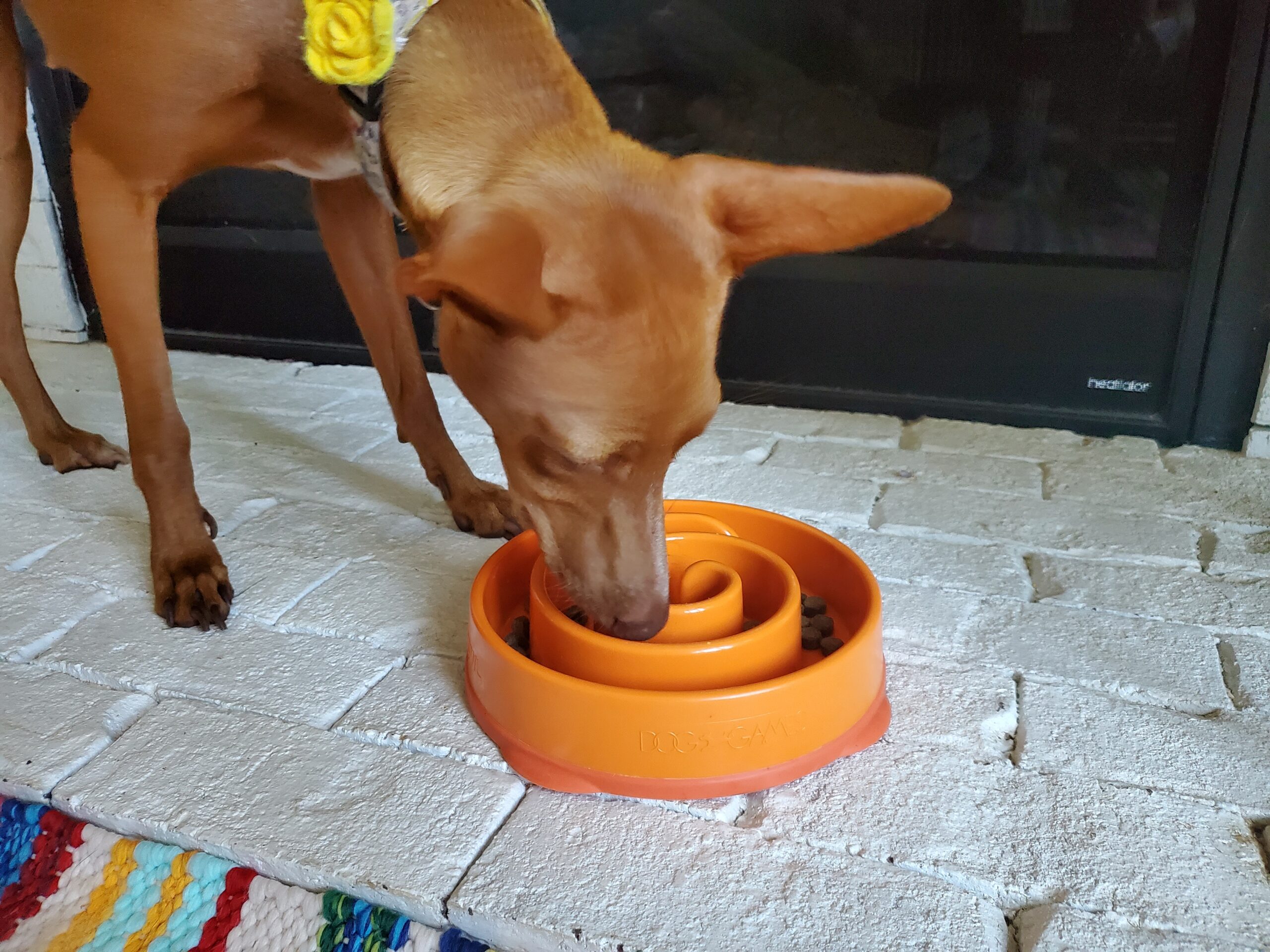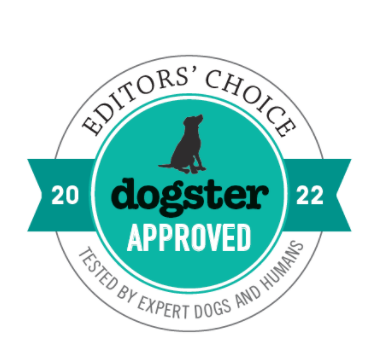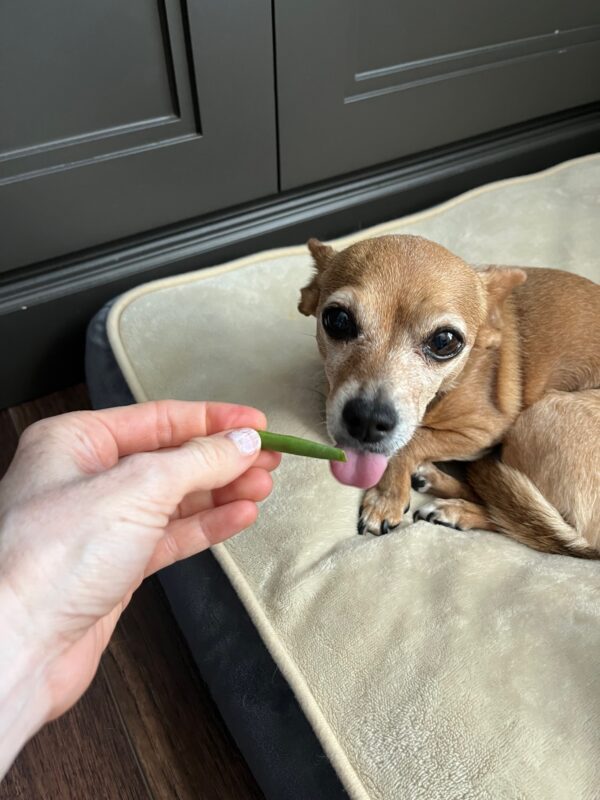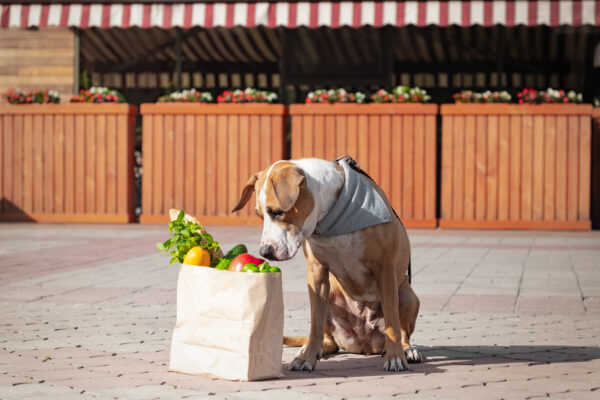Ever watched your dog eat and think, He’s not even chewing? Many dogs literally inhale their food. This can cause them to vomit, choke or bloat, which can be deadly. So how do you get your dog to eat slower? Slow feeder dog bowls and slow feeder inserts can help alleviate these issues and provide many other benefits by making your dog eat slower.
Benefits of slow feeder dog bowls and slow feeder inserts
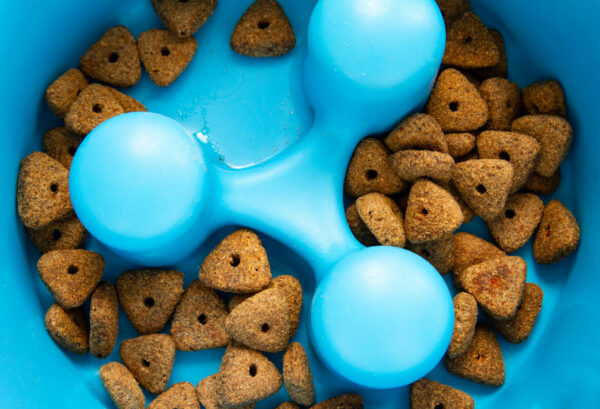
Slow feeder dog bowls are food dishes with raised shapes and ridges inside the bowl that the dog must eat around to get to his food. This slows down how fast the dog eats. Marj Ediger, a professional dog trainer of 45 years, says there are many positive benefits to using slow feeder bowls with dogs, including:
- Slowing the ingestion of food
- Preventing choking
- Preventing vomiting and other gastrointestinal discomfort
- Providing mental stimulation
- Preventing bloat by lessening the amount of air dogs intake.
Dogs used to run 20 miles a day to find food, and now we hand it to them on a silver platter, says Marj. While we can’t replicate that effort and reward system for getting food, we can challenge our dogs with slow feeder bowls. Slow feeder bowls can be used with any type of dog food, whether it’s dry, wet or raw — and even some soft human foods that are safe for dogs like peanut butter, dog-friendly vegetables and fruits and plain pumpkin puree (not pumpkin pie puree).
Types of slow feeder dog bowls and slow feeder inserts
You can find all kinds of slow feeder dog bowls and inserts on the market today, including ceramic, plastic, silicone and stainless steel. Different sized bowls, varying bowl heights, and varying groove patterns are available to accommodate large and small dog breeds.
Marj recommends the stainless-steel slow feeder bowls for dogs instead of plastic because if you leave your dog’s bowl on the floor, he may chew on it and ingest the plastic. The steel ones are durable and easy to throw into the dishwasher, she adds.
You can also buy slow feeder inserts for dog bowls. These usually suction cup to the bottom of your existing bowl. Another option is putting balls or safe toys in your dog’s dish, so the dog has to work around the object to get his food.
Cons to slow feeder dog bowls
Slow feeder dog bowls require more cleaning than a regular dog dish. Clean in all the crevices, which can be hard depending on the design. Some bowls have removable inserts — making them kind of a hybrid between a one-piece slow feeder and an insert — and these can be hard to clean as well.
Marj prefers one-piece slow feeders, as the inserts tend to be messier and harder to clean.
Choosing a slow feeder dog bowl
There are many types of slow feeder dog bowls and inserts on the market for a range of prices. Inserts are not necessarily cheaper than a one-piece bowl, it just depends on the material and brand name.
As for effectiveness, the slow feeder bowl that works best for you is really going to depend on your dog. The size of your dog’s nose and how determined he is to inhale his food may mean you try a few different bowl designs before finding one that makes your dog eat slower. The depth and the number of groves/blocks creates the difficulty level. A short-nosed breed may not need one with as many grooves or as deep as a large-breed will to slow him down.
How do I find the best slow feeder dog bowl for my dog?
Top-rated slow feeder dog bowls are usually easy to clean and have enough ridges to noticeably slow your dog down. You may even want to time your dog when you are trying them out, so you can really tell if you are getting your dog to eat slower or not.
Slowing down your dog’s eating time is healthy for him! In addition to slow feeder bowls, Marj suggests training your dog during his meal, or scattering his dog food around the house so he has to sniff it out. Enrichments like these are not only healthier, but more fun for both dog and pet parent.
Here are three examples of slow feeder dog bowls:

